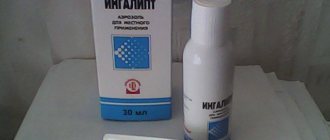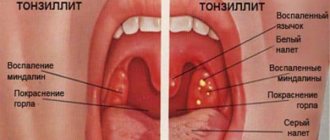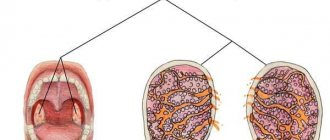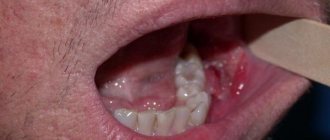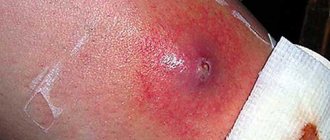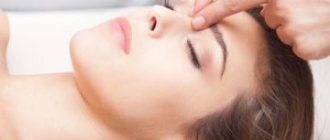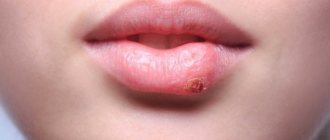Daily hygiene of teeth and gums includes rinsing the mouth with special solutions. Rinse aids can be purchased at pharmacies, or you can prepare them yourself. Their use ensures cleaning of the oral cavity in hard-to-reach places, freshening of breath and destruction of certain types of pathogenic microorganisms. You can easily make a mouthwash with your own hands, and this will be the right decision when you are intolerant to chemical components and want to make your dental hygiene as safe as possible.
How to make a mouthwash
To make a simple mouthwash you will need a few basic ingredients.
Namely:
- sea salt, which has a bactericidal effect and is rich in minerals;
- alcohol or water tincture of herbs;
- soda, which effectively cleanses bacterial plaque;
- essential oils that have good antibacterial and anti-inflammatory effects.
“Store-bought” mouthwashes contain substances such as thymol and methyl salicylate.
These are antiseptics with a toxic effect, which are contraindicated during pregnancy and are not intended for oral administration.
If accidentally swallowed, adverse reactions may occur, especially when there are diseases of the gastrointestinal tract. Rinsing your own has many benefits. You can select each ingredient yourself, which is especially important for allergy sufferers. This rinse is natural, it does not contain preservatives or dyes, which means side effects are minimized. It is also a very economical option, which is good for large families.
A DIY rinse can be a bleaching agent if you add a little apple cider vinegar or lemon juice to it. To prepare, you need to take a glass of water, a spoonful of hydrogen peroxide, 3 drops of eucalyptus oil, a teaspoon of calendula tincture. Hydrogen peroxide is first added to a glass of water, then the remaining components. The mixture is thoroughly mixed, after which you can rinse your mouth.
For an antibacterial rinse, you will need an infusion of chamomile or thyme; a decoction of oak bark is also good.
Recipe for making an antibacterial mouthwash:
- You will need two tablespoons of chamomile, a teaspoon each of salt and soda, 4 drops of tea tree oil.
- Chamomile is poured with boiling water, then filtered.
- Salt, soda and ether are added to the broth.
A good natural antiseptic is aloe, from the juice of which you can make a mouthwash. To do this, you need to mix 100 ml of mineral water, 20 drops of mint oil, a spoonful of citrus juice, a spoonful of oak bark infusion and 100 ml of aloe juice.
"Kitchen" products
One of the most famous and simple recipes is a rinse with soda or salt. One teaspoon of salt and 1/2 teaspoon of soda are dissolved in a glass of warm boiled water, the resulting composition is thoroughly stirred until all particles are completely dissolved.
You can use a rinse with natural apple cider vinegar to combat swelling. You will need to mix a third of a glass of vinegar, a teaspoon of glycerin, 10 drops each of mint and lemon oil, 5 drops of myrrh oil. The mixture should be infused for four days in a dark place, then stored in the refrigerator and shaken before use. For rinsing, half a teaspoon per glass of water is enough.
A teaspoon of baking soda and five drops of iodine will help you quickly get rid of acute toothache: dilute this with a glass of boiled water, rinse for at least two to three minutes, up to five times a day.
Mouthwash is an essential part of daily hygiene. Indeed, store-bought Colgate Plax or other similar ones give the effect of freshness and pleasant taste. But are they natural? Do they treat diseases effectively, or only create a visible effect? But products made independently are a 100% result. Shall we try to make some recipes?
Why, exactly, do you need a rinse aid? If we consider in detail, the toothbrush is not able to penetrate into the so-called “hard-to-reach places.” It is impossible to completely treat the palate, tongue, gums, and cheeks. Therefore, it is necessary to cope with this with the help of a water product, that is, a special rinse aid.
With essential oil
It is better to prepare rinses with essential oils in alcohol for long-term storage.
There are 2 simple recipes:
- Mix 200 ml of vodka, 20 drops of mint oil, 15 thyme, 5 sage and 5 myrrh. A teaspoon of the mixture is added to a glass of water before each rinse.
- Mix 200 ml of vodka, 10 drops of lemon juice, 15 tea tree oil, 10 lavender. This product also has a whitening effect. Applies like the previous one.
A good antibacterial rinse would be one with tea tree oil and mint. To prepare, you need to take 200 ml of water, 5 drops of mint oil and 5 tea tree oil. This product will give you a feeling of freshness and cleanliness.
Other recipes for natural alcohol-based mouthwashes:
- 200 g of vodka is mixed with 500 ml of water, 30 ml of glycerin and 10 ml of aloe juice are added to the solution. The mixture is brought to a boil, then 20 drops of mint oil are added.
- Add 5 drops of mint oil and 5 mg of cinnamon powder to a glass of vodka. This remedy should sit for several days. After preparation, the mixture is filtered and used for rinsing.
- Mix two teaspoons of mint and sage, add 5 tablespoons of red sandalwood powder. The mixture is poured with a liter of water and 200 ml of alcohol. The product is infused for a week in a dark place.
- The container contains 50 ml of water, 100 ml of vodka, 15 drops of lemon juice and 20 bergamot oil. The contents are shaken and infused for 7 days. Before use, a teaspoon of infusion is diluted in 50 ml of water.
Recipes based on natural remedies
A decoction of oak bark will help get rid of bleeding gums and strengthen them. You can supplement the mixture with sage, chamomile or rose hips. If only oak bark is used, it is better to cook it in a water bath: a couple of tablespoons of crushed oak bark are placed in an enamel bowl and filled with water. The dishes are placed in a saucepan with water; it all needs to be heated for about half an hour.
When adding other herbs, a tablespoon of the mixture per one and a half glasses of water is enough. Bring to a boil and simmer a little under the lid, pour into a convenient container and cool. An important point: it is better to store the product no longer than a day, after which all the beneficial substances will evaporate.
For fresh breath, mouthwashes with mint are always useful. For half a liter of water you will need two tablespoons of dry green tea without additives and natural dried mint. Pour clean hot water (500 ml) over the herbs and leave to infuse overnight. In the morning, add a teaspoon each of benzoin tincture and myrrh infusion. Keep refrigerated.
An unusual recipe that will get rid of germs. It is only suitable for adults: add a tablespoon of thyme, myrrh and sage (dry herbs) to a cup of cognac and leave to steep for two weeks. The infusion is filtered and diluted with water (1:1) before rinsing. For a light whitening effect, you can add a spoonful of lemon juice.
A recipe based on a weak chamomile decoction will help soothe gums and relieve bleeding: half a liter of decoction, a tablespoon of natural liquid honey and ten drops of several types of essential oils: orange, mint, pine, eucalyptus, cloves, sage. The oils are first added to the honey, everything is mixed well and dissolved in water. Another advantage of the composition is that it has a good whitening effect, and the enamel is not damaged.
Propolis and calamus will help quickly relieve any inflammation: a teaspoon of propolis and calamus tinctures, five drops of tea tree oil and one hundred ml of water. The solution must be stored in the refrigerator in a tightly sealed container.
Terms of use
How to use mouthwash correctly:
- It is better to prepare solutions daily to get maximum benefit from them.
- Rinse is carried out after brushing your teeth.
- The oral cavity should be rinsed for about 2 minutes, collecting 15-20 ml of solution.
- The product should be stored in a dark place out of reach of children.
- For half an hour after rinsing, you do not need to eat anything to allow the medicinal components to act on the mucous membranes and teeth for some time.
- Under no circumstances should spoiled products be used.
For those who are experiencing toothache or inflammatory gum disease, natural rinses with iodine and salt are suitable. Soda is a natural antiseptic, and it also removes bacterial plaque well when there is an ulcer or aphthae. When there are periodontal pathologies, it is more effective to use alcohol tinctures, which can be used to rinse your mouth daily throughout the entire treatment period.
Alcohol rinses are recommended for aphthous stomatitis and various forms of gingivitis. They are contraindicated during pregnancy and for young children.
As for mouthwashes for children, they can be used from the age when the child understands that the liquid must be spit out. Before this period, the mucous membrane should be wiped with a cloth soaked in the solution.
Mouth rinses
Advertising posters encourage people to buy this or that product, assuring them of its usefulness and safety. And we, often trusting words, turning off our reason, follow the lead of the manufacturers. Not many people look at the composition, much less know what effect this or that component can have. Judge for yourself, since the product can be stored for 3 years, it probably contains sufficient preservatives to prevent its premature deterioration.
There is an opinion that mouth rinses are not only beneficial, as they help cleanse the mouth of food debris, reduce acidity in it and give fresh breath. They can be even more toxic than toothpastes. But one way or another, even a small dose can enter the body.
Rinse aids are very popular abroad, and the main component in most products is ethyl alcohol. In percentage terms, its figure can reach 22%. It has an antibacterial effect, but unfortunately, not selectively. This means that along with pathogenic bacteria, the beneficial microflora of the oral cavity is also at risk, which can cause gum inflammation and bleeding.
Products from Russian manufacturers do not contain alcohol, which is replaced by zinc chloride, sodium citrate, and boric acid. But the composition includes cheap sodium lauryl sulfate, which forms abundant foam and is used in the production of most detergents. It can cause skin itching, stomatitis, and aphthae.
Of course, it would be wrong to blame all rinse aids in a row. And yet, if possible, then why not prepare this remedy at home, especially since it does not require much time.
What does the effect look like?
Like animations on VK, Instagram, Snapchat and other social networks, effects on TikTok are popular. The program analyzes the location of the eyes, nose, and lips. If developers miss the point of personalization, the animation will look unrealistic. The talking mouth mask also adapts to the person, or more precisely, to his facial features.
The talking mouth is one of the oldest masks on the platform. The animated sticker here is from Musicalli. However, initially it was based only on cats. A funny human smile on an animal caused laughter and tenderness. Later, several talking mouths appeared, numbered 2, 3 and 4, but they all look like a smile that adapts to the movements of a person's lips.
DIY mouthwash
Option 1
- oak bark 2 tbsp;
- walnut leaves 2 tbsp;
- mint 2 tbsp;
- sage 2 tbsp;
- soda 2 tsp;
- oil ether. eucalyptus 5 drops;
- 600 ml boiling water.
Preparation:
- Separately, pour 200 ml of boiling water over the bark and nut leaves and heat for half an hour in a water bath.
- Mint and sage are mixed, poured with a glass of boiling water and left for ten minutes to brew.
- The decoctions must be filtered, mixed and added essential oil and soda. Mix again until smooth. The rinse aid is ready.
It is stored in the refrigerator.
Option 2
To prepare you will need:
- Cognac 200 ml;
- sage tbsp;
- calendula tbsp
Preparation:
- Pour cognac over the herbs and place in a cool, dark place for 10 days.
- Strain the finished tincture and pour into a glass bottle.
- To use it as a rinse, you need to dilute the tincture in equal proportions with water. Use after eating or brushing your teeth.
Option 3
To prepare you will need:
- rose hips 0.5 cups;
- liter of water;
- eucalyptus essential oil.
Preparation:
- Fill the rose hips with water and put on fire. Bring the water to a boil and let it simmer for 15 minutes.
- Remove the broth from the heat, cool, strain, add a few drops of essential oil and stir.
- Use the mouthwash 2 times a day.
homemade mouth rinse
Good afternoon, dear readers! There are days when you want to freshen your breath. It happens that a person suffers from bad breath (and there are no serious diseases), and purchased products do not help, then you should pay attention to tips on how to make mouthwash at home.
All recipes based on herbs and essential oils that you can prepare yourself. Using these products, you will solve several problems at once: freshen your breath, strengthen your gums and improve your teeth. At the same time, the mouthwash is convenient to use on the road or on a hike instead of toothpaste, and you can also take it with you to work and use it during your lunch break.
The purpose of mouthwash
Mouth rinses serve as a breath freshener, prolong the effect of toothpaste, and help get rid of dirt in hard-to-reach places. In addition, it is very easy to use, it is attractive due to its availability and low price.
Mouth rinses are divided into two groups:
- medicinal;
- cosmetic.
Cosmetic ones give fresh breath, whiten teeth, remove bacteria and stuck food debris, but do not cure.
Medicinal, as the name implies, treat the oral cavity for various types of diseases. This is exactly what they are developed for. Therapeutic rinses help cope with diseases such as gingitis, stomatitis, periodontitis, and tartar. In addition, they perfectly strengthen enamel and teeth.
Before using a mouthwash, be sure to consult a specialist. Since everyone is in a different state, rinses also come in different types and for specific cases, especially medicinal ones.
However, in addition to protecting teeth, mouthwash is often used for household purposes. This way you can disinfect a toothbrush, washing machine, and toilet. It also helps get rid of the effects of insect bites.


